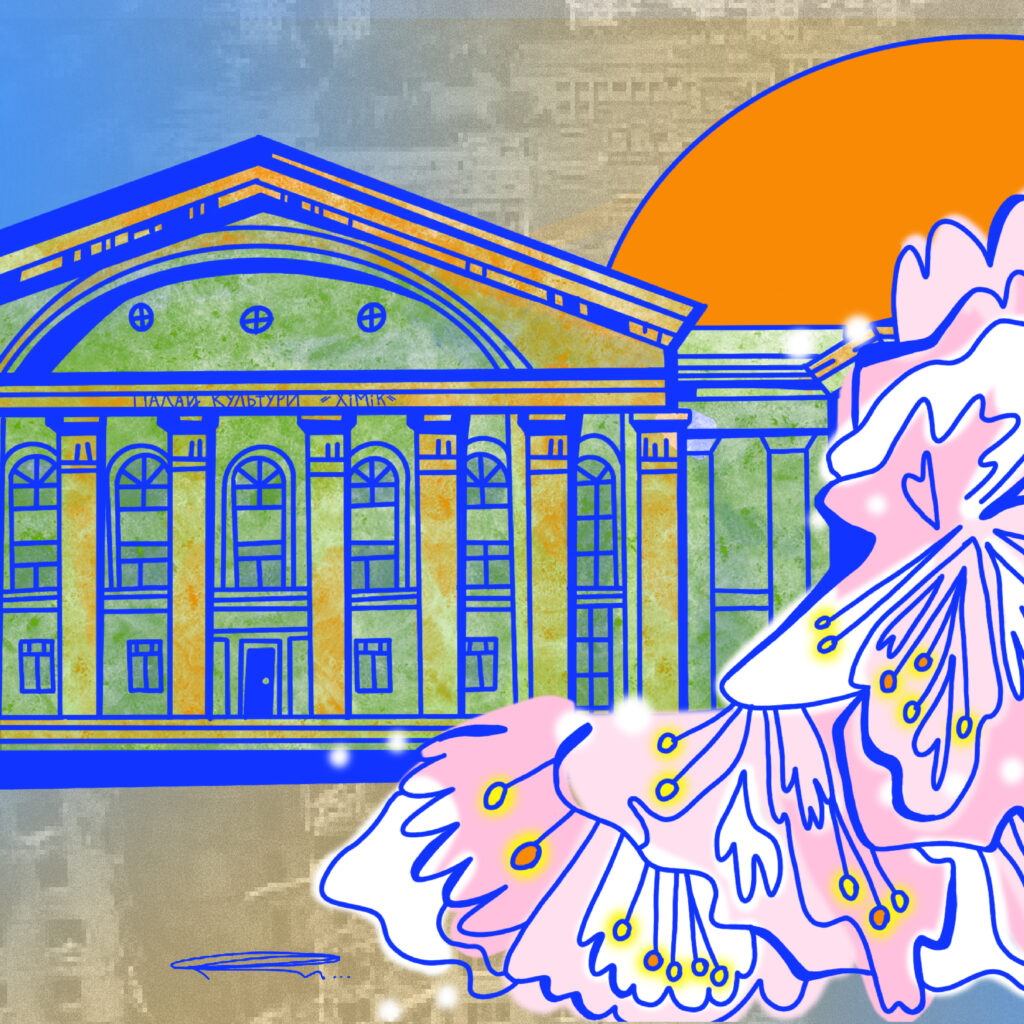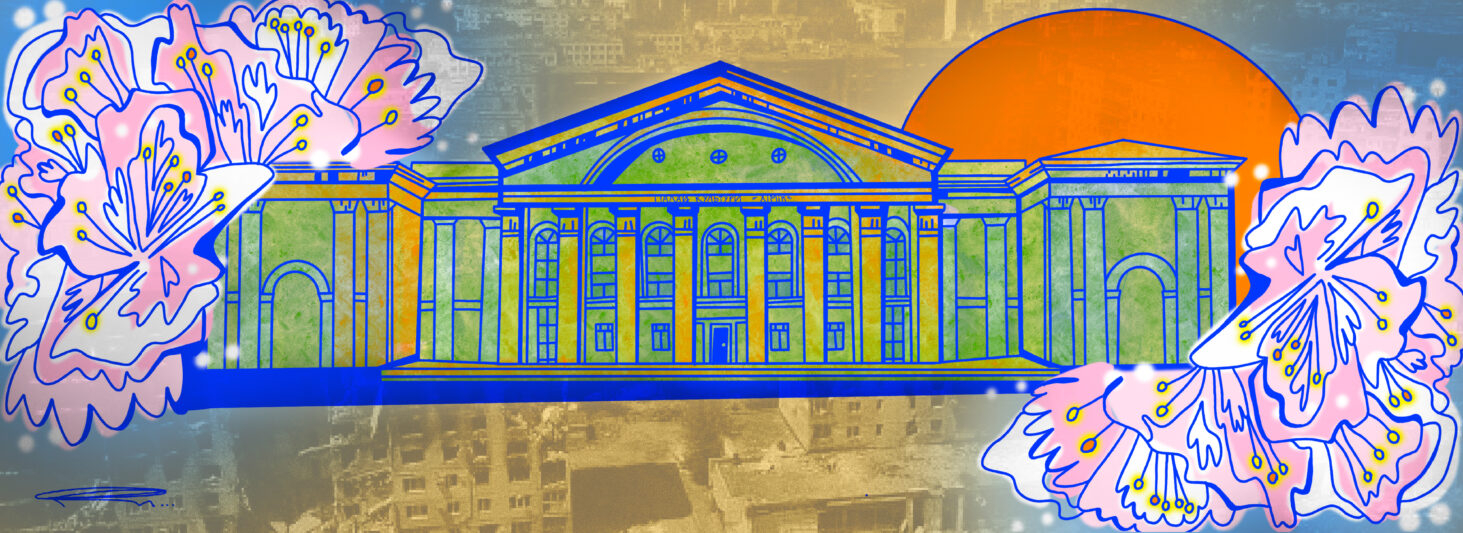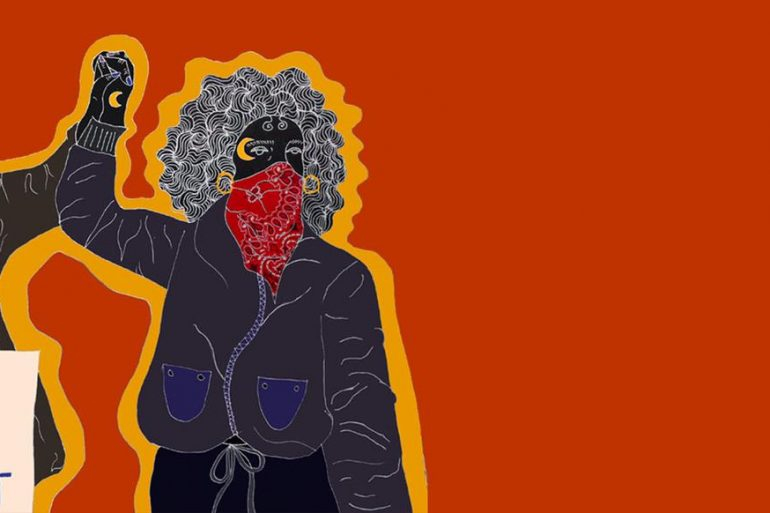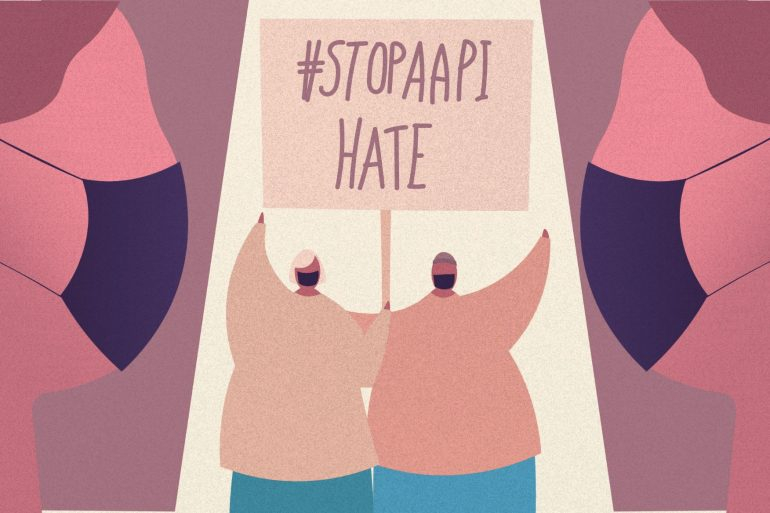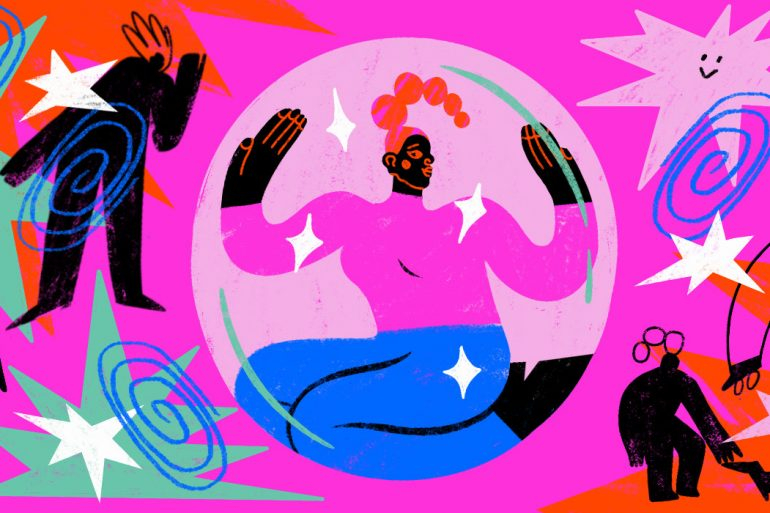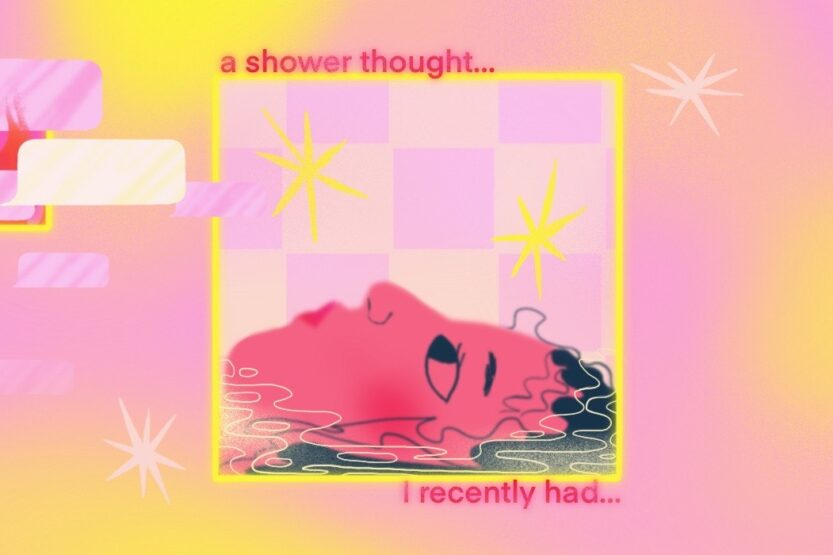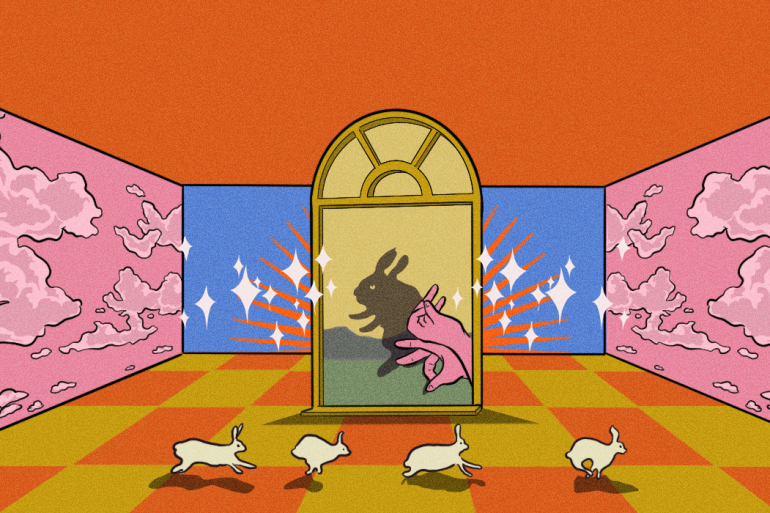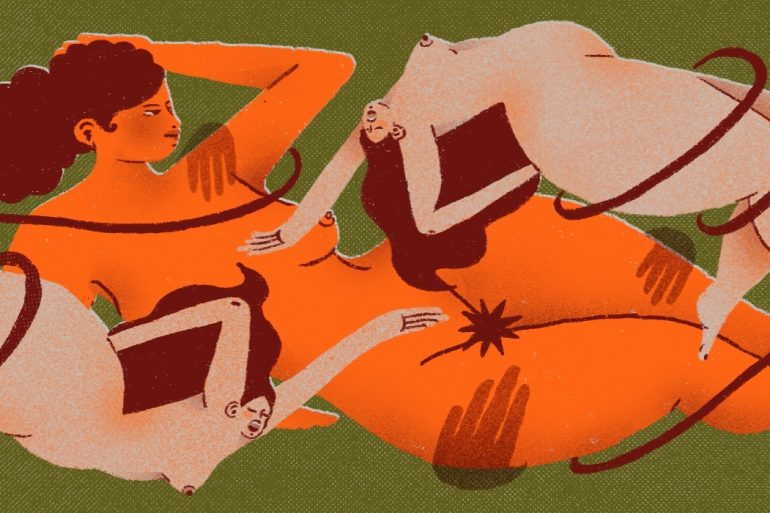Russia’s unprovoked full-scale invasion against Ukraine in 2022 shocked the whole world, but many are unaware that the war had already started in 2014, with the annexation of Crimea and military aggression in Donbas.
While, comparatively, Crimea did not experience much violence, the war in Donbas – a geographical region located in East Ukraine at the border with Russia – caused numerous casualties, massive waves of displacement and the establishment of pseudo-states that ironically brand themselves as ‘people’s republics’.
Although nowadays ‘Donbas’ commonly refers to the Donetsk and Luhansk regions of Ukraine, the origin of this term is purely geological, accentuating the coal basin in the region.
Nevertheless, Russia is trying to use force and propaganda to make people believe that Donbas is not only a geological region, but also a political one.
Politicising the land
Russia’s claims about Donbas are often related to the Soviet legacies, particularly referring to the once thriving coal-mining and metallurgy industries in the region. The heyday of heavy industrial developments was after the Second World War, which saw many people move to this region from different parts of the Soviet Union, particularly from Russia, to fill labour shortages.
Upon the collapse of the Soviet Union in 1991, newly arrived communities automatically became citizens of the now-independent Ukraine. Although the industries were already declining in the late years of the Soviet Union, this process accelerated after its dissolution.
Just like other post-industrial regions around the world such as Detroit or South Wales, residents had to come up with alternative ways to get by. More than this, being a miner was a revered profession in the Soviet Union. The sudden shift from being celebrated workers to ‘social losers’ as the result of the economic collapse led to a burgeoning mafia scene in Donbas.
The start of a huge wave of pro-European demonstrations in late 2013 changed Ukraine’s fate. Commonly commemorated as the ‘Revolution of Dignity’ in Ukraine, it resulted in the fleeing of former pro-Russian president Viktor Yanukovych.
The subsequent power shift put Ukraine in the direction of ‘Europeanisation’ and ‘Ukrainianisation’ – meaning, first and foremost, escaping Russia’s influence and emphasising the role of Ukrainian as the sole official language.
To respond, Russia resorted to coercion and violence under the pretext of protecting the Russian-speaking population as part of the so-called ‘Russian World’. Russia believed that in Ukrainian regions like Donbas, where there are many ethnic Russians or people with familial ties in Russia, local residents would welcome Russia’s arrival.
However, speaking to three Donbas locals, this appears far from the case. Nataliya, Artem and Mykola* have compelled me to believe that people in Donbas are certainly not in favour of ‘the Russian World.’
If anything, their stories prove that the war in 2014, acutely accelerated since the full-scale invasion, only further reinforced their Ukrainian identity – and that solidarities to this effect have been cultivated throughout different Ukrainian regions.
Memories of pre-war Donbas
The modern portrayal of Donbas usually paints the region in a gloomy light, covered in smoke from the heavy industries. However, the pre-war Donbas that survives in people’s memories is colourful and tranquil. And although this region is often viewed as predominantly Russian speaking, Donbas also has many Ukrainian-speaking communities and Ukrainian cultures if we look beyond the cities.
One example is the village of Zvanivka – located near the city of Bakhmut (which is currently occupied and barely exists anymore) – a Ukrainian-speaking settlement consisting of highlanders originally from west Ukraine near the Polish border. They were relocated, or more precisely, forcibly displaced to Donbas by the Soviet state as the result of the population exchange between the Soviet Union and Poland.
The legacy of people being moved around and to the region is significant in conceptualising the Donbas identity. Case in point, Nataliya, whom I met last year in Poland, is from what she calls “a typical Donbas family” – in the sense that much of her family were ‘newcomers’ to the region during the Soviet era. She is in her late 20s, and therefore born after Ukraine’s independence.
She explains to me that her family settled in the Donbas city Horlivka due to her grandfather’s relocation. Originally from the centre of Ukraine, he was offered an opportunity by the state to move to Donbas upon completion of many years of military service in Siberia.
It was quite a popular practice for the state to offer people relocation to Donbas as the rapidly developing industries always needed more labourers. Her grandfather came to Donbas with his Russian wife, whom he met during his time in Siberia, and their daughter, Nataliya’s mum. “Because half of my family is Russian, I never had a second thought of the language spoken in my household, which is naturally Russian,” she tells me.
But just like any other kid growing up in independent Ukraine, it was mandatory for Nataliya to also learn Ukrainian in school. “I would often run to my Ukrainian grandpa to ask him how to do my Ukrainian homework,” she laughs.
Nataliya’s family often travelled to villages in Russia during the summer to visit their relatives. “On the surface, the villages and people there looked exactly the same,” she says. “I felt some subtle differences between these two countries, but it is hard to put them into words.”
Often the differences were mandated by top-down policy. Years of enforced Russification of Ukrainians involved systematic discrimination against the Ukrainian language. This led to the perception to many Russians that using Ukrainian was ‘low-culture’. Such sentiments are expressed in another interview I did with a woman from Horlivka, who described feeling condescended by her Russian relatives for talking with a strong Ukrainian accent.
Subscribe to shado's weekly newsletter
Exclusive event news, job and creative opportunities, first access to tickets and – just in case you missed them – our picks of the week, from inside shado and out.

When I meet Artem, who is from Donetsk (the biggest city in Donbas), it’s in a stylish cafe in Berlin. He also grew up in an independent Ukraine, and tells me about how thriving the cultural scene was in Donetsk, particularly in 2012 when it hosted part of the UEFA Euros.
“Everyone I know was involved in volunteering for this huge event in our city. That was the first time I felt such a strong civil society movement in my city and I was proud of it,” he recalls with excitement.
To keep growing the cultural scene of the city, he participated in many theatre projects. “Themes of the plays would often include children and women’s rights, environmental problems and so on. Our aim was to bring awareness to these social issues for local residents.”
Speaking of the language issue, he contests: “my mum grew up in a Ukrainian village called ‘New York’, he laughs. “She grew up speaking Ukrainian and shifted to Russian only when she moved to Donetsk.” He adds: “Donbas refers only to the industrial areas, and beyond cities, people use Ukrainian in villages or at least a mix of both languages.”
Nataliya’s and Artem’s memories about their childhood help illustrate how much of the Ukrainian culture, heritage and identity is preserved in Donbas, countering the narrative that the region has always been wholly Russian in character and language.
Fast forward to 2014: everything in Donbas starts to change and thousands of people are forced to leave their homes due to the escalating war with the hope of returning, often only taking their summer clothes and necessary documents with them. They could not believe that the chaos would last so long.
Differing stories
In such a critical situation, people usually left for places where they had family or friends, and planned to stay only for a short while. Because of the complicated history of Donbas, people’s migratory trajectories also varied significantly.
Official statistics show the majority of people left for other Ukrainian cities, but there was also a large number of people who left for Russia. In many cases, this was not due to any ideological reasons – but simply practicality.
As such, the migratory paths of Nataliya, Artem and Mykola are not typical examples. However, I believe their stories add a layer of nuance to the existing work on documenting the war in Donbas, which tends to focus on those who stayed in Ukraine.
My research focuses on how the war since 2014 has been changing people’s narratives about themselves and Donbas as a region through their lived war-related experience. While I also collected many life stories of people who chose to move to Ukrainian-controlled territories, and I am aware of the fact that many people, for a reason or another, did not have the chance to leave the war zone even until now, I decided to present the stories of three people who went a different route in the hope that their stories can be also included in the bigger narrative of Russia’s invasion against Ukraine, and to showcase the transformative power of war and displacement in these rather specific cases.
For ordinary people, the outbreak of a war always causes extraordinary uncertainty. Within a very short period of time, people often have to face moral dilemmas and make difficult but quick decisions about whom to protect and where to go.
Today, in the background of Russia’s full-scale invasion against Ukraine, we understand what happened in Donbas back in 2014 was already the start of Russia’s invasion. But back then for many people in Donbas, it was unclear how long the fighting would last. When the military hostilities became intense, people left their homes with the hope of returning, often only taking their summer clothes and necessary documents with them. Indeed, this was the case for Nataliya, Artem and Mykola.
Initial reactions amid uncertainty
I met Mykola in a park in central Berlin. He was initially cautious to accept my request for an interview. It later turned out that he resides in Germany on his Russian passport, and was therefore unsure whether he would be considered ‘Ukrainian’ enough to share his war experience.
When we do speak, Mykola explains that he was in his last year of college when Russia invaded. He remembers the day when the head of the college entered his classroom and asked everyone to go home for safety reasons. The next day, he was shocked to discover his college building was already in the control of separatists.
He explains that everything became disordered and no one understood what was happening at this time. “But we thought the chaos would be over soon.”
Mykola travelled to the seaside after graduation, believing that everything would have calmed down by the time he returned. Then he received a phone call from his mum, who begged him not to come back as armed hostilities were intensifying.
His family decided to temporarily stay with their relatives in Russia. At that point, they still believed that the problems would soon be over.
Nataliya and Artem had similar experiences. Nataliya mentions at the initial stage of the chaos, her mum decided to come to stay with her in Kharkiv for the summer as they believed everything would soon be back to normal, while Artem was still busy rehearsing for new plays due to premiere that summer.
Carrying the weight of Donbas as an identity
As Nataliya was living in Kharkiv as a student, her mum could not stay too long with her in the student halls. But when they were looking for a flat to stay in together, they were often declined by the landlords. In Ukraine, your city of registration is shown in your identity document, so when the landlords saw they were from the war zone, they were refused without a reason. Their origins limited their opportunities.
Both Mykola and Nataliya were able to briefly go to Russia due to family connections, after realising they could not return home, but did not stay long there either due to high levels of discrimination. It seems the years of anti-Ukrainian sentiment in parts of Russia still resonated, and this increased their feelings of displacement. Overall, their Donbas identities were further suppressed. They were afraid of being asked where in Ukraine they were from, and could feel a sense of pity in others’ tone when they mentioned Donbas.
Later, Nataliya found an opportunity to study in Canada, while Mykola moved to Germany for work.
Artem also took a job offer and moved to Germany in 2014. Alongside his work, he participates in activism. Having initially started his activist journey in an organisation for Russian-speaking communities in Germany, he was shocked he was called ‘Khokhol’, a derogatory term for Ukrainians, by a colleague there. He tells me: “since then I left that organisation and became more critical of the so-called Russian culture, which thinks itself superior above the other ones.” He subsequently joined other Ukrainian activists in Berlin and participated in events raising awareness about Ukraine, shifting to speaking Ukrainian over Russian.
The transformation of their identity does not stop here. Since the outbreak of Russia’s full-scale invasion, they had to once again ask themselves where they belonged.
The future of Donbas
From their bitterness of not being accepted by others back in 2014 to the sense of responsibility in helping their country at war, Nataliya, Artem and Mykola’s stories after the full-scale invasion exemplify how the war has managed to unite the whole country.
Since everyone across all Ukrainian regions now has corporeal experience of the war, Mykola tells me that his friends from Kyiv, who found it hard to relate to his grief back in 2014, now understand what has been going on for him for all these years.
Now settled in Germany, Mykola’s flat became a refuge for people fleeing from the full-scale invasion. He remembers last year there were constantly people coming to stay at his place, from all different Ukrainian regions. They now shared a greater understanding and empathy towards Mykola’s predicament in 2014. “I know exactly what people are going through, so I want to help as much as I can,” he says.
Nataliya is conducting a research project on Ukrainian refugees, and while gathering data for her research, she returned from Canada to devote herself to volunteering in Poland and Ukraine, trying to gather donations and bring humanitarian supplies to people who are still near the frontlines. Likewise, Artem continues with his creative projects and political activism in order to keep raising awareness of the everyday reality in Ukraine and introducing the unique Ukrainian culture to the international audience.
I ask about their future plans and how they envision the future of Donbas/Ukraine, since memories can often enable people to face life as it comes rather than indulging in the past. Their thinking of the future also reflects the current stage of their sense of belonging.
Mykola and Nataliya have reconciled with the fact that they have lost their ‘home’, in both a physical and mental sense. Thus they are working hard to build a new home in their adopted countries of residence.
It’s different for Artem. Maybe because his family is still there, he holds on to the dream that one day he will go back to his city and his flat next to a highway linking other major cities in Donbas, where there is also a Soviet-style cinema named ‘Donbas’. He expresses his desire to revitalise this cinema and create modern theatrical plays themed around post-war justice, decolonisation, and other social issues.
The renowned Donbas-born Soviet dissident Ivan Dziuba already questioned in 1965 in his powerful essay Internationalism or Russification? whether the Soviet prosecution against Ukrainian intellectuals is actually a form of Russian chauvinism in the name of Soviet internationalism. This still resonates today.
While Russia is brutally pushing for draconian control over Donbas and Ukraine overall to retrieve an outdated Soviet-idea of Russian Chauvinism, the stories of Nataliya, Mykola and Artem run counter to this idea.
These snapshots into their lives, dreams and ideals reveal that this war has made them think more deeply on who they really are and has given them new comfort with being called a ‘Ukrainian’. Even if occasional misunderstandings and grievances still remain, they feel hopeful for a better Ukraine born out of the bloody war.
“Ultimately, my goal is to dismantle the Soviet term ‘Donbas’, and rediscover the Ukrainian culture and diversity of the region,” Artem notes, with hope.
*pseudonyms given for this piece
What can you do?
- Read more about Donbas: a short but well-written essay about the social history of Donbas entwined with her own life experiences by Donetsk-born journalist Yulia Abibok, the best history book on Donbas in English: Freedom and Terror in Donbas: A Ukrainian-Russian Borderland, 1870s to 1990s by Hiroaki Kuromiya, and the most famous contemporary Ukrainian novel about Donbas: Voloshilovgrad by Serhiy Zhadan.
- Watch films: Donbass (2018),Atlantis (2019) andBad Roads (2020) which depict the war in Donbas, and the documentaryThe Earth is Blue as Orange, directed by famous Ukrainian female director Iryna Tsilyk, which is extremely powerful in showing war-affected childhood and resilience of coping with trauma.
- Do: Donbas is still along the very frontline of the war. The start of 2024 witnessed an unprecedented scale of Russia’s missile attack against Ukraine. Urge western governments to support Ukrainian defence and attend protests and demonstrations in solidarity with the Ukrainian people.
- Support Ukrainian voices, for example Commons, a Ukrainian left-wing journal that cultivates solidarities between Palestine and Ukraine as well as other repressed countries/regions across the world.
- Donate to the Ukrainian army support groupCome Back Alive and local grassroots organisations, such as KHARPP, which I have personally volunteered for.
- Izoliyatsia (meaning ‘isolation’ in English): A cultural organisation based in Donetsk until 2014 and then moved to the capital Kyiv. The site of the organisation in Donetsk was transformed from a former insulation factory, where the name is from. After 2014 the venue was changed into a prison, where many pro-Ukrainian activists were tortured.
- Read this personal essay from Dmytro Chepurnyi, a Ukrainian curator and writer, reflecting his longing for returning to Donbas.
